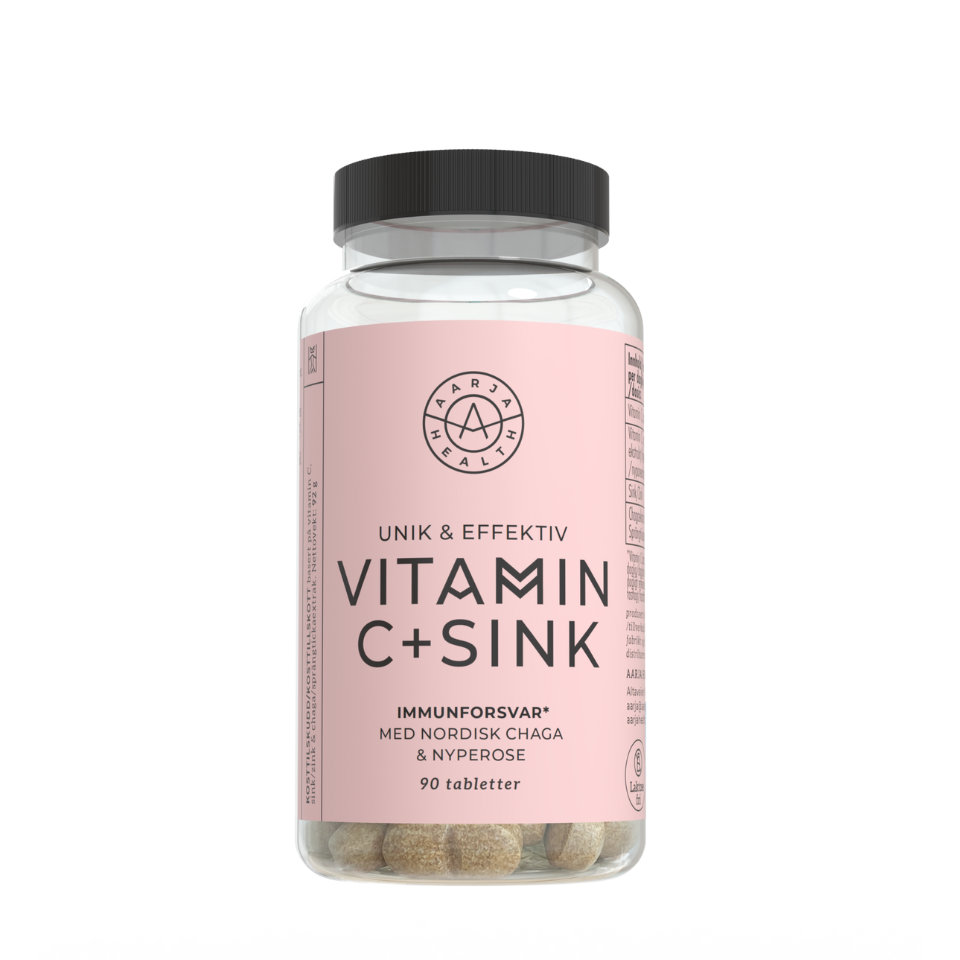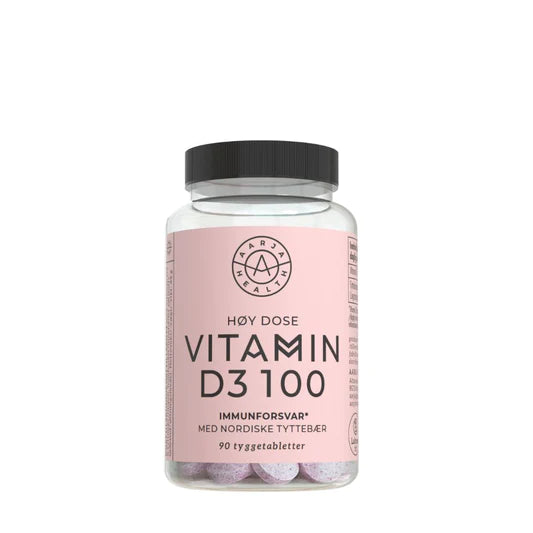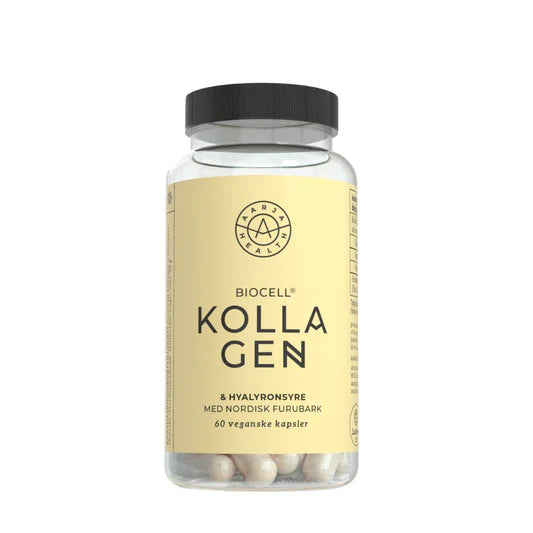
Benefits of Zinc - An Important Trace Element For Your Health
How does zinc affect our health? What is the recommended dose per day and what are the main functions and benefits of this trace element in our body? Zinc is often taken only when the first symptoms of flu appear, which is also highly recommended. However, it is important to ensure a sufficient intake of zinc throughout the year, which can be ensured by ensuring a varied diet.
Zinc is an important trace element in our body that affects the activity of more than 200 enzymes. An adequate and regular intake of zinc promotes, among other things, a normal function of the immune system, wound healing and the cell division process. It is also an important trace element for children's normal growth and development and is said to promote normal function of the sense of taste and smell.
Zinc should be supplied daily through the diet as it is not stored in the body. It is especially recommended for vegans to look to dietary sources of zinc, as many plants contain phytate which impairs zinc absorption. Zinc is found naturally in many foods, but it is also added to many food products. A sufficient intake of zinc can be ensured through a healthy varied diet or, if necessary, through high-quality dietary supplements. At Aarja Health, we have both our Magnesium 3 + Zinc + B6 + Nordic Lingon and vitamin C with Zinc + Chaga + Rosehip .
How do I know if I suffer from zinc deficiency?
If you are often tired, have difficulty concentrating, get sick easily or suffer from hair loss, it is possible that you are not getting enough zinc in your diet. Vegans and vegetarians as well as pregnant women and the elderly are more vulnerable to zinc deficiency. The risk group also includes those who suffer from ulcerative colitis or other intestinal diseases.
Zinc deficiency can also occur in those who drink too much alcohol or people on hormone replacement therapy.
Chronic zinc deficiency is rare and is often caused by a genetic disease. Some of the symptoms of chronic zinc deficiency manifest themselves as growth and development problems, sexual immaturity, chronic diarrhea or rashes.
The most common symptoms of zinc deficiency are:
- Impaired immune function
- Persistent infections.
- Mood swings
- Skin problems and hair loss.
- Weight gain or weight loss for no particular reason
- Problems with the nervous system
The symptoms fit many diseases, so it is difficult to judge zinc deficiency based on them alone. If you think you are suffering from a zinc deficiency, you can try adding zinc-rich foods to your diet or use a high-quality, absorbable zinc-containing food supplement to support your diet. If the symptoms persist, however, you should contact a doctor. Zinc deficiency can be investigated, among other things, with the help of blood tests.
An excessive zinc intake or overdose of zinc can also be harmful to health.
Health benefits of zinc
Zinc slows down the normal function of the immune system and is used to strengthen the immune system. Zinc has also been studied to help treat the symptoms of the flu and shorten its duration. Zinc as a trace element also reduces cellular oxidation and oxidative stress in the body.
Supports normal skin health
Zinc supports skin health as well as normal growth of hair and nails. Zinc and collagen are said to work together to promote wound healing. Zinc as a dietary supplement can be helpful for people suffering from acne or skin problems.
Supports healthy ageing
Zinc can reduce the risk of certain diseases such as pneumonia, infections and age-related macular degeneration in older people. It reduces the oxidative stress that increases as we age, and at the same time it also improves the function of the immune system by supporting the activity of T cells.
Reduces oxidative stress
Oxidative stress is constantly occurring in our body. However, excessive oxidation of the cells causes silent inflammation and is harmful to our health. Among other things, smoking and a bad lifestyle are said to increase the oxidative stress in our body, as well as aging. Intense exercise also causes temporary oxidative stress. Anti-inflammatory foods (eg vegetables, fruits and berries), vitamins, antioxidants and trace elements such as zinc help reduce oxidative stress.
The most common symptom caused by excessive oxidative stress is chronic silent inflammation, which is the underlying factor in many chronic diseases, such as cardiovascular disease, cancer and even depression. Excessive oxidative stress can also slow muscle recovery.
Supports normal fertility
For men, zinc deficiency can have a reducing effect on testosterone production, which in turn can affect fertility by, for example, reducing sexual desire. Zinc also affects women's fertility and is an important trace element for normal egg growth.
Supports metabolism
The body's metabolism needs enough zinc to function. Zinc is, among other things, involved in the absorption of carbohydrates and amino acids. A sufficient zinc intake not only contributes to digestion but also to a normal energy metabolism.
Supports memory and brain function
Zinc promotes normal cognitive function. A study by several researchers says that zinc has a crucial effect on the functioning of neurons, which affects memory formation and learning.
Foods that contain zinc
Fish and shellfish: oysters, crab, lobster and fish eaten with bones.
Animal products: dairy products, beef and pork, reindeer and liver.
Vegetable products: beans, wild rice, green peas, pecans, peanuts, whole grains, green vegetables, spinach, broccoli and cocoa.
Dietary supplements of zinc
Dietary supplements are recommended for people who do not get enough zinc through their diet. The official recommendation for zinc in the Nordic countries is 9 mg for adults. Zinc is most effective when taken 1-2 hours after eating. Zinc can be taken at any time during the day, but it may have slightly invigorating effects for some people. Therefore, we recommend that you take a zinc supplement in the morning or during the day. At Aarja Health we have both our Magnesium 3 + Zinc + B6 + Nordic Lingon as well as vitamin C with Zinc + Chaga + Rosehip .
The recommended upper limit of zinc for adults is 25 milligrams per day. During flu times, you can raise the maximum dose slightly. Higher doses should otherwise be discussed with knowledgeable healthcare personnel.





